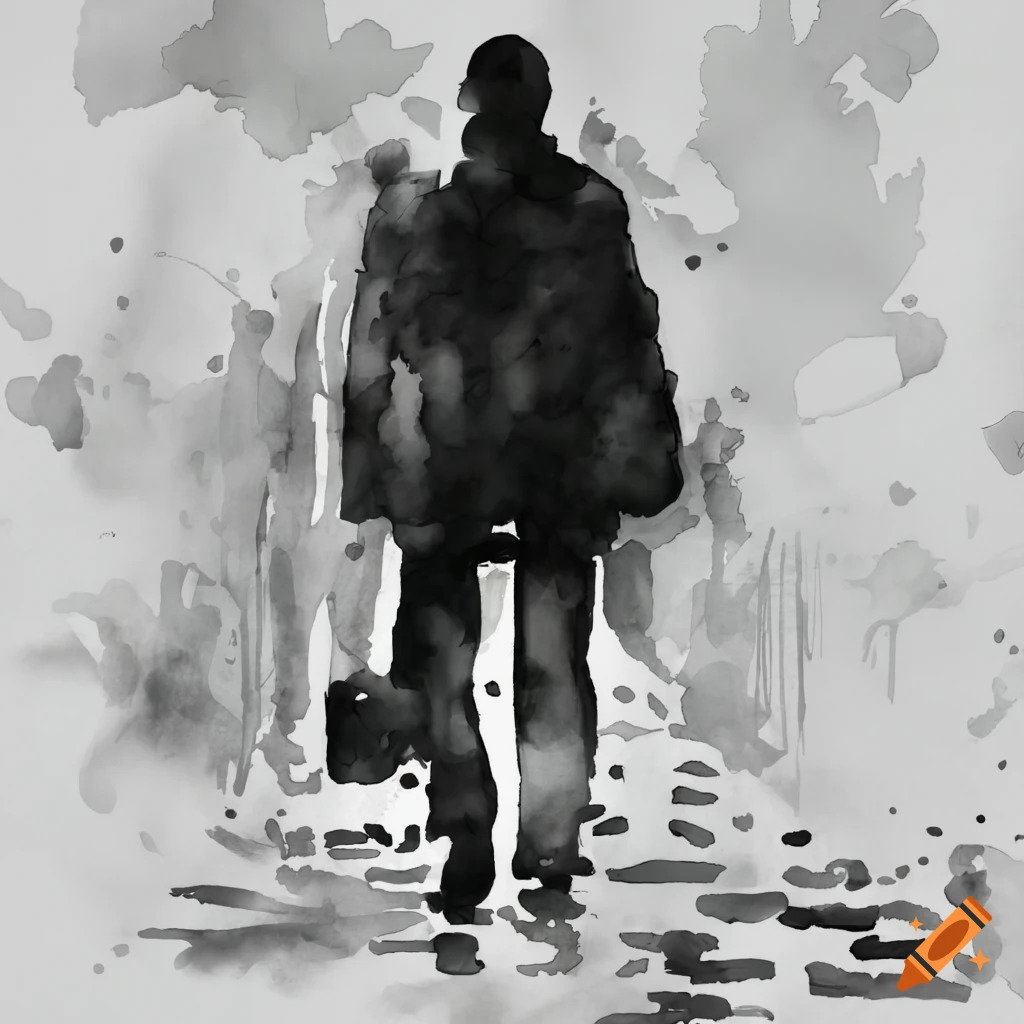The Long Walk Back to My Cell After Watching My Friend Die

Reprinted with permission from the Prison Journalism Project.
It’s December in Kuna, Idaho, just after 5 in the morning. Heavy fog covers the prison complex like a gray angora blanket.
“Go ahead and walk,” a guard tells me. “I’ll follow behind you.”
I amble slowly, heel to toe, kicking up moisture with each step.
I round the corner of the recreation building onto the strait of the breezeway. A blast of frigid wind rips through my denim jacket, chilling me to the bone. In my hands are two bags. One is stuffed with a coffee maker, electric fan and computer speakers. The other holds a coffee mug, water jug, composition book, reading materials and a black binder with the words “Hospice Vigil” on it.
Because of the fog, it’s difficult to see the stainless steel partition splitting the walkway — one side for residents, the other side for security staff. Lest there be any doubt about who belongs where, a line painted crimson on the concrete reinforces the divide.
On this somber early morning, I rebel and walk down the wrong side of the track. The guard follows behind me in a golf cart, escorting me back to my unit because of a fog restriction. She doesn’t say anything about my rebellious act. Perhaps she feels conflicted about admonishing me for a small transgression just 15 minutes after my friend died. She was there too. I had held his hand and looked into his blue eyes as he took his final distressed swallows of life.
I’ve known the sergeant for four years. She and I get along. She knows I’m not a flight risk.
She ushers me deeper into the haze. The headlights of the golf cart radiate around my form, creating a long shadow that stretches into the murk. I am disappointed the sergeant didn’t ask if I was OK, or offer any condolences, after my friend died. I have never felt as dehumanized as I do in this moment, required to saunter alone, dejected, along the frosty breezeway.
I hope I heard regret in her voice when she ordered me to walk forward. I hope it was moral conflict I saw in her eyes. I hope she feels bad watching me. I wonder, Will she share words of comfort? Will she offer me a ride back to my unit? Will she show any compassion? Does she care at all?
It’s probably against prison rules for her to show me empathy, or to even acknowledge the gravity of what had just occurred. I understand. She can’t risk everything for the feelings of an inmate. She’s just doing her job. I can’t hate her for that.
But in that moment, I do. I want to yell at her. Talk smack. Be rude.
I am livid about being forced to march ahead of her while carrying these bags with my friend’s belongings, my hands aching from their weight and the cold.
A little understanding right now would mean the world. I try to snuff my growing irritation. I have to. Even if she wanted to give me a ride on her golf cart, it’s against prison policy.
It was the second time in a week I had watched someone die. This is the experience of an incarcerated hospice worker, an occupation I volunteer for. I want to be there for those who would otherwise have no one in their final moments — the way I wasn’t there for my best friend when he ended his life two years ago.
Despite my efforts, I cannot repress my rage. I heave vulgar facial expressions over my shoulder at the sergeant in her padded seat. I can’t make out her reactions to my scowl in the glare of the golf cart’s headlights. But I can see myself.
Looking back into the blinding light, I catch my shadow in the hovering vapor. I see myself hunched and shrunken, gripping my cruel judgment, ugly and unfair.
I accused her of being unreceptive to my emotional predicament, while I never considered hers. How insensitive to forget that there is a human on that golf cart. A person experiencing the same emotional dilemma as me. A man had just died. On her watch and mine.
Her sergeant’s stripe is a symbol of her capability to stay focused in times of dire importance. She has a duty to uphold.
My frustrations subside. I am no longer upset with her, only with the wretchedness of the situation. Now I can focus on the task at hand. I also have a duty to uphold. I carry on and finish my journey, delivering the black binder to the clinical staff. The papers inside detail exactly how my friend had lived his final days, ending bluntly with the words “pronounced deceased.”
He is in a better place now. I am happy for him. His suffering is over. He honored me by permitting my presence at his end.
But it’s not really the end, is it? Certain kinds of human interactions carry a substance that lives on. In instances when we let our more noble nature shine, we can find personal growth through compassion. We learn. We forgive. We overcome. So that we may be more understanding toward others. Regardless of what side of the red line we walk.
George Thornick can be reached at IDOC facilities by mail or email.